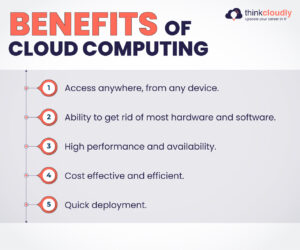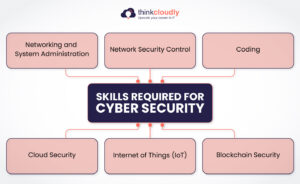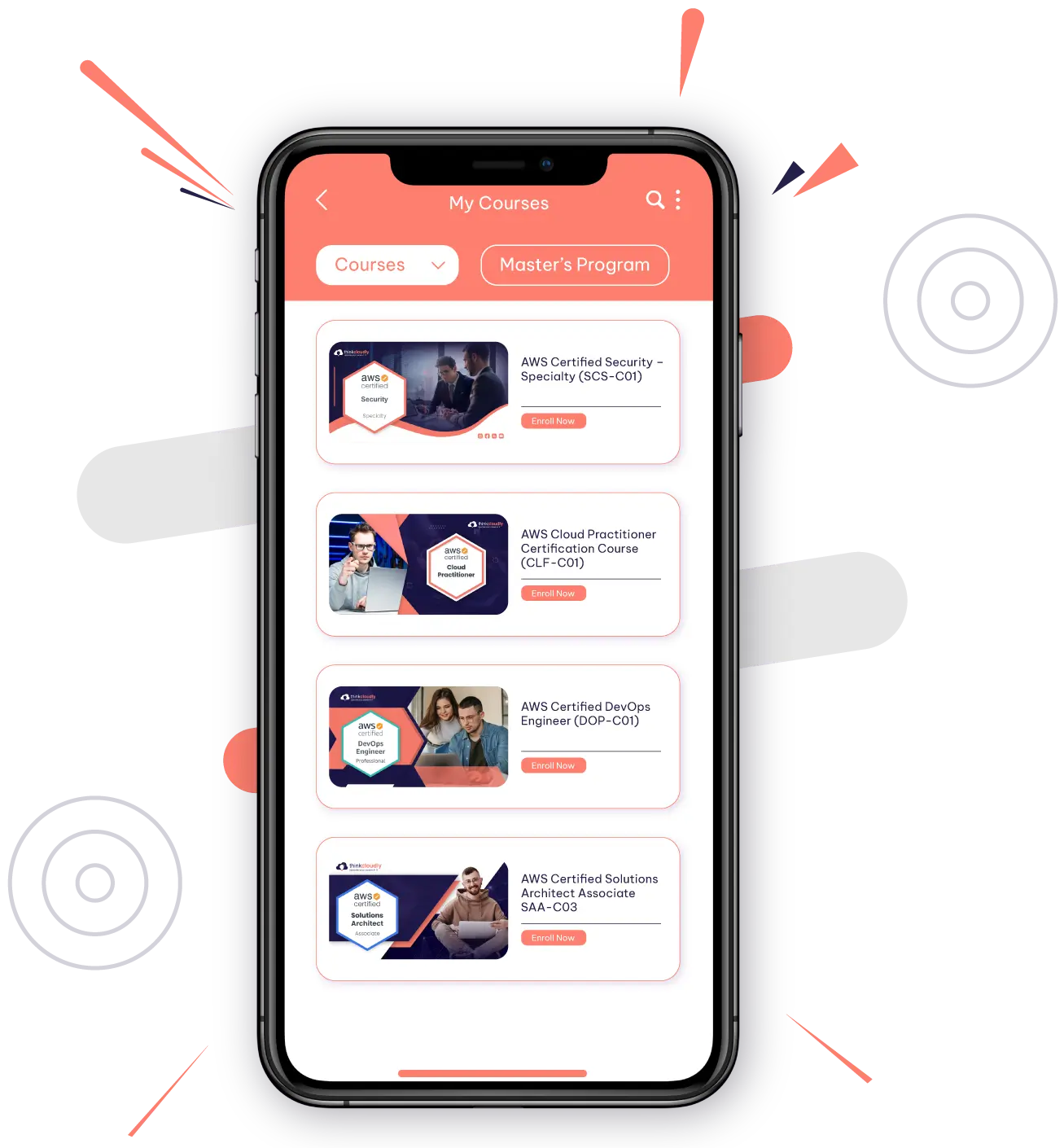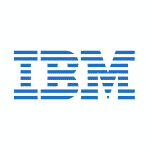Cloud Computing VS Cyber Security
If you are working in IT sector then both cloud computing and cyber security become very important for you. Because both of them are in high demand and providing high salary in IT sector. But it becomes a bit difficult for newbies to differentiate between these two which is clearly explained in this cloud computing VS cyber security blog. In this we have explained how cloud computing is different from cyber security in various aspects. We have tried to explain these differences by dividing them in two ways, first on the basis of technical and second on the basis of career. So let’s start
Difference between cloud computing vs cyber security on technical basis
Technical differences between cloud computing and cyber security is as follows –
Que: What is Cloud Computing?
Answer: Cloud refers to servers that are accessed over the Internet. And computing is a place to store, manage and process data on remote servers. Now collectively cloud computing means in simple terms storing, managing and accessing data and programs on remote servers hosted over the Internet rather than on a computer’s hard drive.
Que: What is Cyber Security?
Answer: Cyber security aims to protect systems, applications, computing devices, sensitive data of organizations and individuals from cyber attacks. This could be technology or practices that reduce the impact of cybersecurity.
Focus:
Cloud computing aims to provide computing services such as storage, servers, databases and software through the Internet.
Cyber security aims to protect storage, systems, servers and data from unauthorized access and cyber threats.
Tools:
Cloud computing uses certain platforms to provide computing resources or we can say that these are the cloud computing service providers. Such as Microsoft Azure, Amazon Web Services (AWS), and Google Cloud Platform (GCP).
There are about 45 tools in cyber security. But the most commonly used ones are – Bitdefender, Splunk, Kali Linux, Metasploit and Wireshark etc.
Benefits of cloud computing vs cyber security:
The benefits of cloud computing are as follows-
- Access anywhere, from any device.
- Ability to get rid of most hardware and software.
- High performance and availability.
- Cost effective and efficient.
- Quick deployment

The benefits of cyber security are as follows-
- Both internal and external data protection
- Business continuity
- Builds customer trust
- Early threat detection and response
- Improves productivity
Drawbacks:
The Drawbacks of cloud computing are as follows-
- Internet outages or weak connectivity may increase downtime.
- Possibilities of data breach increased.
- Limited control and flexibility
- Difficulty switching from one cloud to another.
The Drawbacks of cyber security are as follows-
- Setting up a firewall correctly is challenging.
- This may slow down the system a bit.
- This is very expensive.
- Settings must be up to date.
Challenges of cloud computing vs cyber security:
Cloud Computing
- Data privacy and security
- Excessive dependence on the network
- Multi-cloud environment
- Rely on Internet Connectivity
- Insufficient resources and expertise
Cyber Security
- Cloud attack
- Phishing and spear-phishing attacks
- ML and AI attacks
- Supply chain attacks
- API attacks
- Drone-jacking
Service models used:
Three service models are used in cloud computing – Software as a Service (SaaS), Platform as a Service (PaaS) and Infrastructure as a Service (IaaS).
Cyber Security has its own service models as follows – Security as a Service(SECaaS), Identity and Access Management (IAM), Incident Response and Endpoint Security.
Cost:
Cloud computing is cost-effective when compared to cybersecurity, as it allows customers to pay only for the resources they use for their projects.
Cybersecurity is an expensive thing compared to cloud computing, as it requires significant investment in personnel, security tools, and training. so if we see the difference b/w cloud computing and cyber security we can say that cyber security is more expensive.
Difference between cloud computing vs cyber security on Career/job basis
Career based difference in cloud computing vs cyber security is as follows –
Skills Required:
Cloud Computing
- Programming Languages – Python, JavaScript and R
- Database management skills
- Cloud service platform knowledge
- Information security
- linux
- Application Programming Interface (API)
- DevOps
Cyber Security

- Networking and System Administration
- Network security control
- Coding
- Knowledge of operating systems and virtual machines
- Cloud security
- Internet of Things (IoT)
- Blockchain Security
Courses and Certification in cloud computing vs cyber security:
Cloud Computing-
- AWS Certified SysOps Administrator
- AWS Certified Solutions Architect
- AWS Certified Developer
- Google Certified Professional (GCP) Cloud Architect
- Google Certified Professional (GCP) Data Engineer
- Microsoft Certified: Microsoft Azure Fundamentals
- Cloud Computing AWS Course
- CompTIA Cloud+
- Certified Cloud Security Professional (CCSP)
- Microsoft Certified: Azure Solutions Architect Expert
- Microsoft Azure Cloud Computing
- AWS Cloud Computing
Cyber Security –
- GIAC Security Essentials Certification (GSEC),
- Cyber Security Fundamentals Certificate (ISACA)
- System Security Certified Practitioner (SSCP) by (ISC)².
- Offensive Security Certified Professional (OSCP)
- GIAC Certified Incident Handler (GCIH)
- Certified Ethical Hacker (CEH)
- ISACA Certified Information Security Manager (CISM).
- CompTIA Advanced Security Practitioner (CASP+)
Job Roles:
Cloud Computing-
- Cloud administrator
- Cloud security analyst
- Cloud support engineer
- Cloud software engineer
- Cloud network engineer or Computer Network Security
- Cloud engineer
- Cloud automation engineer
- Cloud data scientist
- Cloud consultant
- Cloud architect
Cyber Security jobs-
- Computer forensic analyst or Computer Security Service
- Security Manager
- IT Security Specialist
- Security advisor
- Safety engineer
- Security administrator
- Security director
- Information security analyst
- Security specialist
- Chief Information Officer
Conclusion
So perhaps you must have known how cloud computing is different from cyber security, what are the objectives of both and how both work. I hope you learned something new and unique. We have shared a lot of information in this cloud computing vs cyber security blog but still there is so much to learn that a blog cannot cover. If you want to learn more and get a high paying job by mastering cloud computing or cyber security, then you can contact us. Many students have found their dream jobs with the help of ThinkCloudly and you can too. Simply contact us and we will let you know how we can help you.












No comment yet, add your voice below!